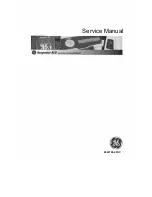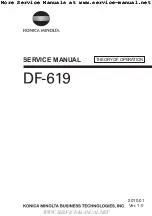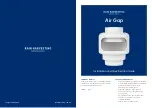
Woore Parish Council
Defibrillator Operation & Maintenance Policy
April 2021
Astley Parish Council Meeting 16 June 2021 Appendix d. (Woore PC Defibrilator Operation & Maintenance Policy)
DEFIBRILLATOR OPERATION & MAINTENANCE POLICY
1.
History
Woore Parish Council is responsible for two Semi- Automatic Defibrillators for use within the
Parish of Woore. Following recommendations from West Midland Ambulance Service the units
were placed and registered by Woore Parish Council and access via a 999 call was confirmed
with Ambulance Control on 10
th
June 2019.
2.
General
There are circumstances where the heart goes ‘out of sync’. Being a four chambered muscular
pump, it gets an electrical signal which contracts the muscles in order. Fibrillation occurs when
the muscles are in a spasm which affects the flow of blood. Defibrillators give a shock to the
heart in order to stop the spasms. Sometimes the heart has stopped and in this condition the
machine will not allow a shock as the heart is not in spasm. When stopped the heart needs
cardiac massage (CPR).
3.
Maintenance
Minimal, the unit self- tests daily, weekly and monthly. An LED screen displays a black circle if all
is well, and a battery level with three segments showing. A fortnightly
visual check should be
made to ensure the LED indicators are showing the correct readings. The batteries will require
a check after four years or repeated use. The electrode pad condition should be checked every
3 months to ensure the use by date is not exceeded.
4.
Records
A log of fortnightly, and quarterly checks should be maintained and kept on computer by Parish
Clerk. There should also be electronic diary reminders for pads and battery replacement. There
should be a record of unit usage/deployment (when/where). The Ambulance service can assist
with this data if required. This will provide statistics for both the Parish and WMAS. Data is
recorded using a national database called ‘The Circuit’.
The unit should be wiped down and
replenished after use. Spare pads and shaving kits will be held by the Parish Clerk or
alternatively, if spares are not made available, the units should be made ‘out of service’
whilst
replacements are sourced.
5.
Insurance
Defibrillators are covered under Parish Insurance for damage and theft. The Parish is
accountable for ongoing maintenance and regular, recorded checks of the operation of all
equipment, in line with best practice guidance from the manufacturer and the detail herein.
6.
Operation
First dial 999. Control will advise of the closest defibrillator location and provide and a code.
Cabinets should be clearly marked with a unit/location number that can be supplied to the
Emergency Services Operator if the caller is already at the location.
CPR should be conducted form the moment the patient stops breathing and should work in
conjunction with the defibrillator. The unit is semi-automatic and will tell the operator what
and when to do (or not to do) resuscitation techniques. It will take electronic readings from the





























